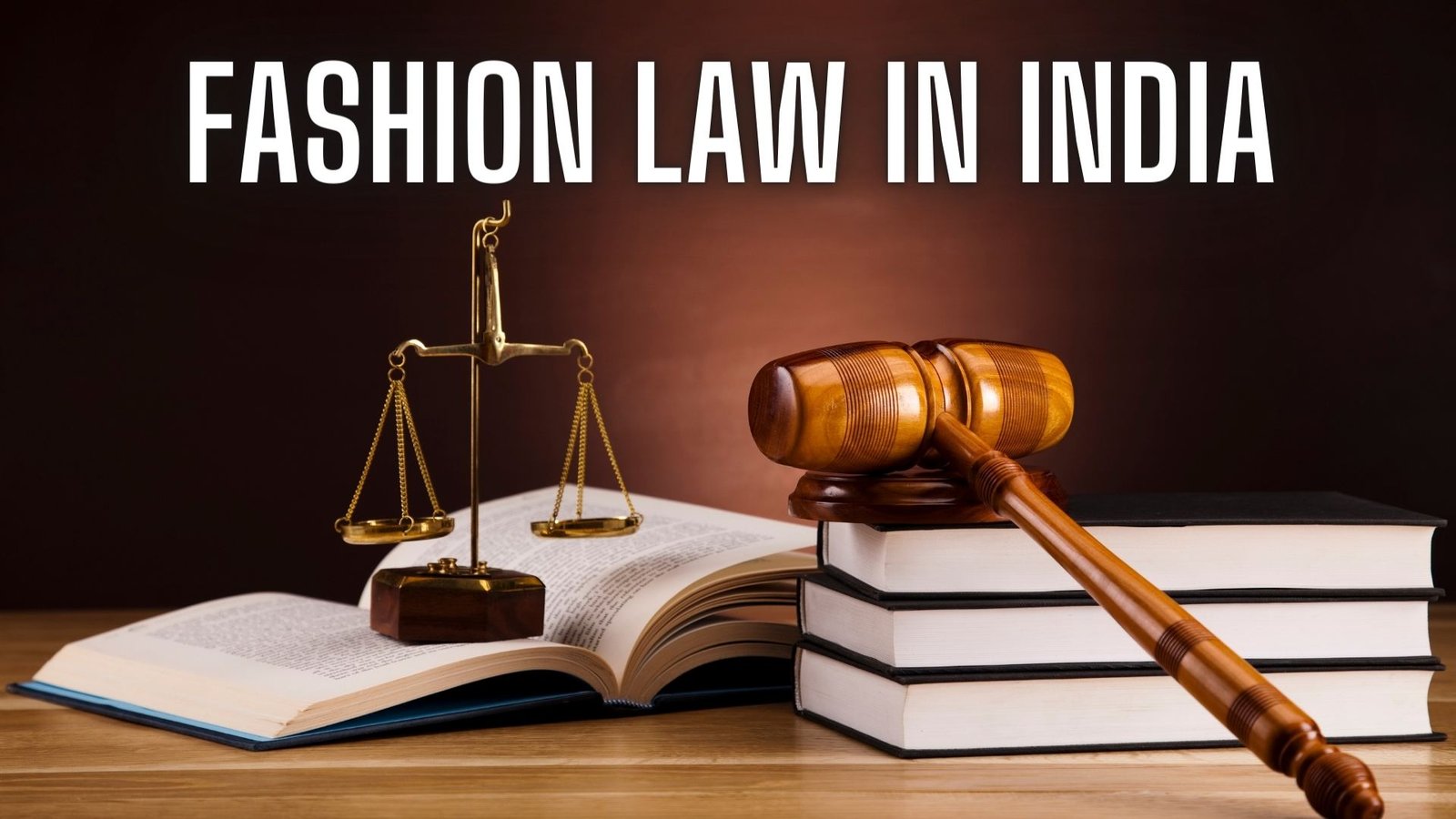On this page you will read detailed information about Fashion Laws In India.
As an entrepreneur in the fashion industry, you need to be aware of the legal requirements around running a business in this sector. India’s laws regulate various aspects of the fashion industry, from intellectual property to employment to taxation. Failure to comply can result in legal trouble, fines, or even the closure of your business. This guide provides an overview of the key fashion laws in India that you must know to build and operate a successful fashion company. From protecting your brand to ensuring fair wages and work conditions, understanding India’s regulatory framework is essential. Use this resource to confirm you have all the necessary licenses and permits, follow best practices, and avoid potential legal pitfalls. With the right knowledge and preparation, you can turn your passion for fashion into a thriving business while still upholding your legal and ethical responsibilities.
Overview of Fashion Laws in India
As a fashion industry professional in India, it is important to understand the laws and regulations that govern your business. India has various acts and policies in place to regulate the fashion industry.
The Textiles Committee Act, 1963
The Textiles Committee Act established the Textiles Committee to ensure the quality of textiles and textile machinery. The Committee is responsible for grading and marking textiles, inspecting textile machinery, and advising the central government on matters related to the textile industry.
The Handlooms Reservation Act, 1985
The Handlooms Reservation Act reserves certain textile articles like saris, dhotis, and scarves for production on handlooms only. It aims to protect Indian handloom weavers and promote the production of handloom textiles.
The Geographical Indications of Goods Act, 1999
The Geographical Indications Act protects the intellectual property rights of weavers and artisans. It provides legal protection to goods that have a specific geographical origin. Several Indian textiles like Banarasi silk sarees, Chanderi silk sarees, and Kota doria are registered under the Act.
The Legal Metrology Act, 2009
The Legal Metrology Act establishes standards for weights and measures to ensure accuracy in commercial transactions. It regulates the use of standard weights and measures for textiles sold by length, area or volume. Non-compliance can lead to penalties.
Consumer Protection Act, 2019
The Consumer Protection Act aims to protect consumers from unfair trade practices and defective goods. It covers textile products and holds manufacturers and retailers liable for selling substandard or defective textile goods to consumers.
By understanding these regulations, fashion businesses can operate legally and ethically, protecting themselves as well as consumers and industry artisans. Compliance will help establish your business as a responsible member of India’s fashion community.
Key Aspects of the Fashion Act
The key aspects of India’s Fashion Act cover intellectual property, manufacturing, and sales. Understanding these areas is crucial for fashion businesses operating in India.
Intellectual Property
Protecting intellectual property (IP) such as trademarks, designs, and patents is essential in the fashion industry. India’s Fashion Act provides protection for IP to safeguard original fashion creations. Businesses should register trademarks for brand names and logos, as well as design patents or copyrights for unique clothing designs or prints. Registering IP helps prevent copying and ensures legal rights to take action against infringers.
Manufacturing Regulations
India’s manufacturing regulations aim to protect workers, consumers, and the environment. Fashion businesses must follow guidelines regarding fair wages, workplace conditions, use of child labor, and environmental standards. Factories and production facilities must meet safety standards and obtain necessary permits and licenses to legally operate. Businesses should perform regular audits of their supply chain to ensure compliance. Non-compliance can result in legal penalties, damage to brand reputation, and loss of business partnerships.
Sales Requirements
India’s Fashion Act sets guidelines for the lawful sale of clothing and accessories. Businesses must obtain sales tax identification numbers, charge the appropriate sales tax for items sold, and remit taxes to the proper authorities. Price tags, receipts, and invoices must include details like the brand name, item description, size, and price. Certain textiles like silk, wool, and leather have labeling requirements for fiber content and country of origin.
Following the key aspects of India’s Fashion Act helps fashion businesses operate legally and ethically. Protecting intellectual property, adhering to manufacturing regulations, and meeting sales requirements allows brands to avoid issues that could disrupt operations or damage their reputation. Regular compliance checks and audits help ensure businesses remain up-to-date with the latest laws.
In the previous post, we had shared information about An Overview Of The Environmental Protection Act 1986, so read that post also.
Licensing and Registration Requirements for Fashion Businesses
To operate a fashion business in India, certain licensing and registration requirements must be met. These help ensure consumer protection and allow the government to monitor trade.
Trademark Registration
Registering your brand name and logo as a trademark establishes your legal ownership and prevents others from using them. You must apply for trademark registration with the Controller General of Patents, Designs and Trade Marks. The process can take 18-24 months and fees are typically Rs. 10,000-15,000.
GST Registration
If your business manufactures or trades goods, you must register for Goods and Services Tax (GST). GST is India’s tax on the supply of goods and services, replacing many indirect taxes. Registration is done through the GST Network portal. Fees are Rs. 5,000.
Business Registration
To legally operate, you must register your business. The most common types for fashion brands are:
- Private Limited Company: Requires at least two shareholders and two directors. Fees are Rs. 5,000-10,000.
- Limited Liability Partnership (LLP): Suitable for small businesses with two or more partners. Fees are Rs. 5,000-10,000.
- Sole Proprietorship: For single owners. No registration fees but the owner is personally liable for all business debts.
You must register with the Ministry of Corporate Affairs. The specific requirements and fees depend on your business structure.
Importer-Exporter Code
If you import or export goods, you need an Importer-Exporter Code (IEC) from the Directorate General of Foreign Trade. The code is required for all international trade transactions. Fees are Rs. 5,000.
By properly registering and licensing your fashion business in India, you establish credibility and ensure compliance. Staying up-to-date with legal requirements allows you to avoid penalties and focus on growing your brand. With the right licenses and codes in place, you have the freedom to operate legally and access new opportunities.
Legal Considerations for Fashion Designers
As a fashion designer in India, there are several legal considerations you must keep in mind. Failure to do so could result in legal trouble, fines, or damage to your brand’s reputation.
Trademark Protection
Registering your brand’s name and logo as a trademark protects your intellectual property and gives you exclusive rights to that trademark. Without a trademark, others could use your brand’s name and logo, creating customer confusion and lost revenue. The trademark application process in India typically takes 12-18 months and requires a formal application with the Indian Trade Marks Registry.
Copyright Protection
The designs, sketches, and artworks you create are automatically protected under Indian copyright law upon creation. However, officially registering selected works with the Indian Copyright Office provides stronger protection and enforcement rights. Copyright registration is inexpensive but not legally required. It’s a good idea, though, especially for your most distinctive and valuable designs.
Contracts and Agreements
All business relationships, collaborations, and partnerships should be governed by written contracts and agreements to avoid disputes or legal issues. This includes contracts with suppliers, manufacturers, employees, freelancers, and business partners. Verbal agreements are difficult to prove or enforce, so get all agreements in writing.
Product Safety and Labeling Laws
All products sold in India must meet certain safety standards and be properly labeled. As a fashion designer, you must ensure any garments, textiles, or accessories you produce or sell comply with regulations around materials, dyes, flammability, and labeling. Failure to do so can result in legal penalties, fines, mandatory recalls, or damage to your brand’s reputation.
Staying up to date with the latest fashion laws and regulations in India is essential to building a successful brand. With the proper legal protections and compliance in place, you can focus on creating innovative, trendsetting designs without worry. But when questions arise, don’t hesitate to consult a legal professional to ensure you stay on the right side of the law.
How Fashion Laws Protect Consumers and Promote Ethical Practices
To protect consumers and promote ethical practices, India has established laws regulating the fashion industry. These regulations aim to uphold standards of quality, safety, and fairness. Failure to comply can result in legal penalties.
Consumer Protection Act, 2019 The Consumer Protection Act protects buyers of goods and services, including fashion products. It holds companies liable for defective products, unfair trade practices, and misleading advertisements that could negatively impact customers. Manufacturers and retailers must ensure their products meet quality and safety standards, provide accurate information about materials and sizing, and handle customer complaints appropriately.
The Legal Metrology Act, 2009 The Legal Metrology Act establishes rules around proper measurement and pricing to prevent deceitful practices. It requires that the net quantity, maximum retail price, and other details be clearly displayed on product labels and packaging. Non-compliance can result in hefty fines and even imprisonment. These regulations give consumers transparency into what they are purchasing.
The Trade Marks Act, 1999 The Trade Marks Act protects brand names, logos, and other marks used to identify fashion companies and their products. It allows brands to register their intellectual property and take action against trademark infringement or misuse. Registration helps distinguish a company’s goods and services in the market, building brand recognition and preventing consumer confusion. Strict enforcement of trademark law is important for fair competition and maintaining brand integrity.
By understanding these regulations, fashion brands and retailers can avoid legal trouble, build consumer trust, and contribute to an ethical industry. Compliance helps to protect customers, promote fair business practices, and support a thriving market overall. Keeping up with changes in the law and regularly reviewing internal policies are steps companies can take towards fashioning a sustainable future.
Conclusion
As you can see, the fashion industry in India must pay close attention to the various regulations and legislations that govern its operations. Failure to do so can result in legal consequences, damage brand reputation, and negatively impact business. However, by making compliance a priority, staying up-to-date with the latest laws, and implementing strong ethical practices, fashion brands and retailers in India can thrive. While the regulatory landscape may seem complex, legal compliance helps create a fair, safe, and prosperous market for companies and consumers alike. By understanding and following the fashion laws in India, you can do your part to support the growth of this vibrant industry.
Disclaimer
The information and services on this website are not intended to and shall not be used as legal advice. You should consult a Legal Professional for any legal or solicited advice. While we have good faith and our own independent research to every information listed on the website and do our best to ensure that the data provided is accurate. However, we do not guarantee the information provided is accurate and make no representation or warranty of any kind, express or implied, regarding the accuracy, adequacy, validity, reliability, availability, or completeness of any information on the Site. UNDER NO CIRCUMSTANCES SHALL WE HAVE ANY LIABILITY TO YOU FOR ANY LOSS OR DAMAGE OF ANY KIND INCURRED AS A RESULT OR RELIANCE ON ANY INFORMATION PROVIDED ON THE SITE. YOUR USE OF THE SITE AND YOUR RELIANCE ON ANY INFORMATION ON THE SITE IS SOLELY AT YOUR OWN RISK. Comments on this website are the sole responsibility of their writers so the accuracy, completeness, veracity, honesty, factuality and politeness of comments are not guaranteed.
So friends, today we talked about Fashion Laws In India, hope you liked our post.
If you liked the information about Fashion Laws In India, then definitely share this article with your friends.
Knowing about laws can make you feel super smart ! If you find value in the content you may consider joining our not for profit Legal Community ! You can ask unlimited questions on WhatsApp and get answers. You can DM or send your name & number to 8208309918 on WhatsApp











